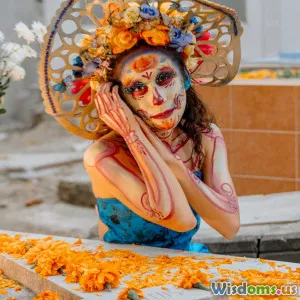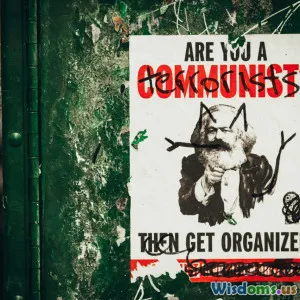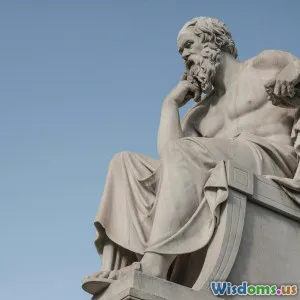
Global Perspectives on Afterlife Beliefs
8 min read Explore diverse global beliefs about the afterlife and uncover profound mysteries beyond death. (0 Reviews)
Global Perspectives on Afterlife Beliefs
The question of what happens when we die has intrigued humanity for millennia. Across cultures, the afterlife is not just an abstract idea but a profound aspect of spiritual and social identity. Beliefs about the afterlife shape moral values, rituals, and even how societies understand existence itself. This article journeys through a variety of afterlife concepts across global traditions — from reincarnation and paradise to ancestral realms and spiritual continuums — exposing the rich tapestry of human hopes and fears about what lies beyond mortal life.
Ancient Egyptian Afterlife: A Journey Beyond Death
One of the most extensively documented and symbolically rich afterlife beliefs comes from Ancient Egypt. The Egyptians believed that death was a transition rather than an end. Their stunning burial practices, including mummification and tomb construction, were designed to preserve the body as a vessel for the soul’s continued existence.
- The "Ka" (life force) and "Ba" (personality) were two critical spiritual components believed to survive death.
- The soul’s journey involved passing through the Hall of Ma’at, where the heart was weighed against a feather symbolizing truth and justice.
If declared worthy, the soul entered the idyllic "Field of Reeds," a serene paradise mirroring the ideal Egyptian life. The detailed funerary texts, like the "Book of the Dead," reflect society’s deep contemplation of life, death, and morality.
Impact on Culture
Egyptian afterlife beliefs led to awe-inspiring architecture like the pyramids and influenced later religious ideas about judgment and the soul.
Hinduism and Reincarnation: The Cycle of Samsara
In Hindu philosophy, death is part of the continual cycle called samsara, the cycle of birth, death, and rebirth. The soul (atman) is immortal, undergoing various lives to achieve spiritual growth and eventually liberation (moksha).
- Reincarnation allows-cum-binds moral action with destiny; actions (karma) determine the circumstances of one’s next life.
- Sacred texts like the Bhagavad Gita emphasize detachment from the physical self and the importance of righteous living.
The concept of reincarnation profoundly influences social structure and ethical responsibility in Hindu societies.
Real-World Dimension
In contemporary India, the belief in reincarnation affects everyday behaviors—people seek spiritual teachers, perform rites for ancestors, and engage in charitable acts to improve their karmic balance.
Christian Heaven and Hell: Eternal Reward and Punishment
Christianity introduces a dualistic afterlife concept where eternal life is either rewarded by entering Heaven or condemned to Hell for eternal separation from God.
- Heaven is described as a realm of eternal communion with God, characterized by peace, joy, and divine presence.
- Hell is portrayed as a state or place of punishment for the wicked or non-believers.
Christian eschatology profoundly influences Western art, literature, and legal systems, underpinning ethical doctrines and community values.
Notable Insight
Quotes like, "I am the resurrection and the life" (John 11:25) highlight the Christian promise of life after death, offering hope and comfort.
Indigenous Beliefs: Spirit Worlds and Ancestral Reverence
Many Indigenous cultures across Africa, the Americas, and Oceania emphasize the existence of a spirit world where ancestors dwell and influence the living.
- The afterlife is often viewed not as a separate realm but an ongoing relationship, with ancestors guiding the living and requiring respect.
- Rituals like the Navajo Night Chant or the Yoruba Egungun festival exemplify honoring spirits and ensuring harmony between worlds.
Example
The Maori of New Zealand believe that souls journey to the "Hawaiki" homeland after death, a sacred ancestral place integral to their identity.
Buddhism: Nirvana and Liberation from Suffering
Buddhism teaches that after death, beings are reborn until they attain nirvana, freedom from suffering and the cycle of rebirth.
- Unlike theistic religions, Buddhism does not emphasize a soul but a continuity of consciousness influenced by karma.
- The Tibetan Book of the Dead provides guidance for the dying soul navigating the intermediate state (bardo) before rebirth.
Contemporary Applications
Meditative practices and ethical precepts foreground the Buddhist approach to life and death, helping adherents overcome fear of death and find peace.
Cross-Cultural Reflections and Modern Perspectives
Despite profound differences, global beliefs about the afterlife often share themes:
- Continuity of the self: Whether as soul, consciousness, or spirit, many traditions envision some form of survival after death.
- Moral consequences: Actions in life frequently determine fate after death, from karmic rebirths to eternal judgment.
- Ancestral connection: Respect for the dead and ongoing relationships between living and the deceased remain common.
Scientific and Secular Views
While afterlife beliefs are primarily religious or cultural, near-death experiences (NDEs) reported globally—such as tunnels of light or peaceful encounters—offer intriguing but inconclusive insights into the possibility of consciousness after death.
Modern psychology examines how these beliefs impact grieving, mental health, and societal cohesion.
Conclusion: The Eternal Fascination with Life After Death
Humanity’s enduring fascination with the afterlife reflects a deep-seated desire to make sense of mortality and find meaning beyond existence. From the elaborate tombs of Egypt to the spiritual quests of Eastern faiths, the diverse beliefs about life after death reveal both the multiplicity and universality of the human spirit.
Whether framed as reunion with a divine presence, reincarnation on a cosmic journey, or continuation in ancestral realms, these perspectives enrich our understanding of cultures and the mysteries that lie beyond the veil of death. By exploring them thoughtfully, we gain not only knowledge but also appreciate the shared human quest for hope, justice, and transcendence.
Rate the Post
User Reviews
Popular Posts















